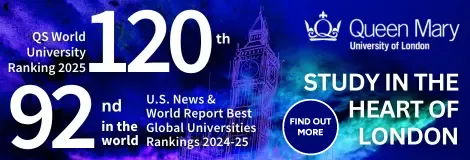Embarking on an MBA programme in the UK equips students with advanced knowledge in business strategies, operations, leadership, and management. It provides exposure to global business practices and networking opportunities, paving the way for career advancement. However, the application process can be competitive, and meeting eligibility requirements is essential.
Below is a detailed breakdown of the key criteria Indian students must meet to secure admission to an MBA programme in the UK. Are you considering an MBA in the UK? Arrange a free counselling with our experienced applications team today.

Eligibility Criteria for Indian Students Pursuing an MBA in the UK
1. Academic Qualifications
A strong academic foundation is critical for MBA admissions in the UK. Specific requirements include:
Bachelor’s Degree:
- A three-year undergraduate degree, such as a Bachelor of Arts (BA), Bachelor of Commerce (B.Com), or Bachelor of Science (B.Sc.), is typically required.
- For prestigious universities, a second-class upper division (2:1) or its equivalent is often the minimum.
- Some institutions may prefer honours degrees like B.Com. (Hons) or B.Sc. (Hons), or a four-year degree programme, such as a Bachelor of Engineering (B.E.).
Institutional Prestige:
- Top-tier UK universities may require degrees from recognised and reputable institutions in India. Academic excellence is heavily weighted in the selection process.
2. Work Experience
Relevant professional experience is a cornerstone of MBA eligibility in the UK.
Minimum Requirement:
- A minimum of three years of full-time professional experience in a managerial or executive role is mandatory for most programmes.
Preferred Experience:
- Leading universities often prioritise candidates with five or more years of experience, demonstrating career progression and leadership skills.
Relevance:
- Experience in strategic decision-making, team leadership, and project management significantly strengthens an application.
3. GMAT Scores
While not universally required, the Graduate Management Admission Test (GMAT) is a common component of MBA applications in the UK, particularly for competitive programmes.
Skill Assessment:
The GMAT evaluates abilities in:
- Analytical Writing
- Integrated Reasoning
- Quantitative Aptitude
- Verbal Critical Reasoning
Scoring and Validity:
- The exam takes three and a half hours to complete, with scores valid for five years.
- A score of 600 is considered good, while scores above 660 are considered excellent.
Alternatives:
- Some universities or affiliated MBA programmes may waive the GMAT requirement, particularly for candidates with extensive work experience or outstanding academic credentials.
4. English Language Proficiency
Since the medium of instruction in UK MBA programmes is English, demonstrating proficiency is essential for Indian students.
Common Tests:
- IELTS: A minimum score of 6.5–7.0 overall, with no band below 6.0, is typically required.
- TOEFL iBT: Scores of 90–100 or higher are accepted by most institutions.
- PTE Academic: Some universities also accept this test, requiring scores of 58–65.
Waivers:
- Students who have previously studied in English-speaking institutions may be eligible for a waiver, although most universities still require formal proof of English proficiency.
5. Additional Application Requirements
Beyond the basic eligibility criteria, MBA programmes often require the following:
Essays:
- Personal statements or MBA-specific essays highlighting career goals, motivations, and leadership experience are essential.
Letters of Recommendation:
- Usually, two or three letters from professional or academic referees are required. These should emphasise your leadership, work ethic, and achievements.
Interviews:
- Many universities conduct interviews to assess communication skills, professional experience, and suitability for the programme.
Application Fee:
- An application fee, typically ranging from £50–£200, may be required.
Top UK Universities for MBA
Indian students aiming for globally renowned programmes can consider these leading UK institutions:
-
University of Oxford (Saïd Business School): Requires GMAT, excellent academics, and significant work experience.
-
University of Cambridge (Judge Business School): Known for its focus on innovation and global leadership.
-
London Business School (LBS): Highly competitive, with stringent academic and professional requirements.
-
Warwick Business School: Offers flexibility through full-time and distance learning MBA options.
-
Manchester Business School: Renowned for its focus on experiential learning.
How to Strengthen Your MBA Application
Highlight Achievements
Showcase measurable achievements in your professional and academic journey, such as awards, promotions, or impactful projects.
Demonstrate Leadership
Admissions committees value evidence of leadership and teamwork skills. Highlight instances where you successfully led initiatives or solved complex challenges.
Professional Certification
Additional qualifications, such as Six Sigma, PMP, or financial certifications, can enhance your application.
Prepare for the GMAT
If required, focus on scoring above 660 to strengthen your profile for top universities.
Tailor Your Essays
Customise personal statements to align with the values and focus areas of each university.
Study an MBA
The journey to pursuing an MBA in the UK can be complex, but with proper guidance, it becomes manageable. Arrange a free consultation with SI-UK for personalised advice on applications, test preparation, and visa requirements. With the right preparation and support, your MBA dream in the UK is within reach.



 I sincerely thank SI-UK for getting me accepted to UCL. The MSc in Urban Development and Planning is extremely competitive, but the right guidance provided by SI-UK made my dream of studying at University College London a reality. The services were exceptional from beginning to end.
I sincerely thank SI-UK for getting me accepted to UCL. The MSc in Urban Development and Planning is extremely competitive, but the right guidance provided by SI-UK made my dream of studying at University College London a reality. The services were exceptional from beginning to end. 

